Shopkeepers at work and leisure
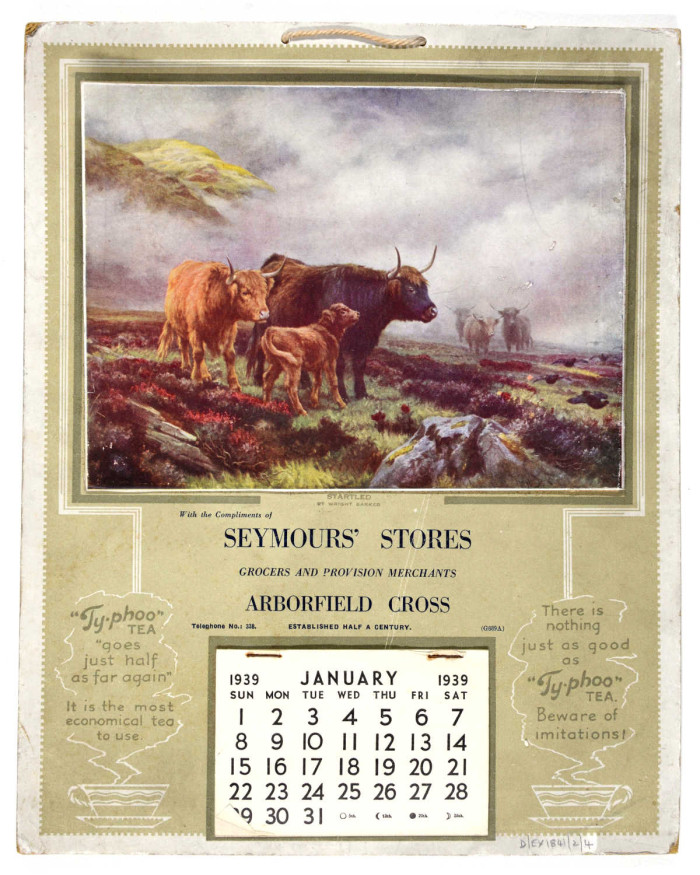
Family and business papers of the Seymour family of Arborfield Cross, 1916-1948 relate primarily to Hylton Seymour (born in 1905) (D/EX1841). They include printed miscellanea from Reading School, 1916-1928; and records of the family business Seymour’s Stores, 1930s-1940s. Perhaps of most interest, Hylton served as a reserve constable in the Aldershot Division of Hampshire Police during the war, and his notebook provides a fascinating insight into wartime crime just over the border.
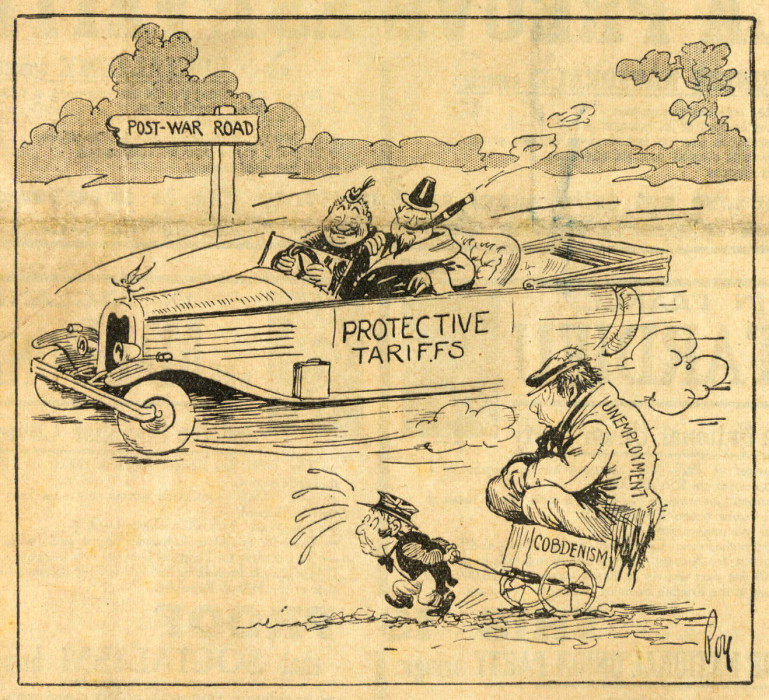
Another small collection relates to E C Dawson, who started out at the Reading Agency Stores, Caversham Road, Reading (possibly as assistant to a relative.) In 1923 he rented new premises at 1 Weldale Street and opened the Weldale Supply Stores, which stocked farm, garden and market produce, eggs, butter, poultry, rabbits, fruit and vegetables. In his own time, Mr Dawson was a Sunday School teacher and nonconformist preacher, and enjoyed riding a motorbike with sidecar, all reflected in his papers, which cover the period from the late 19th century to 1949 (D/EX587).
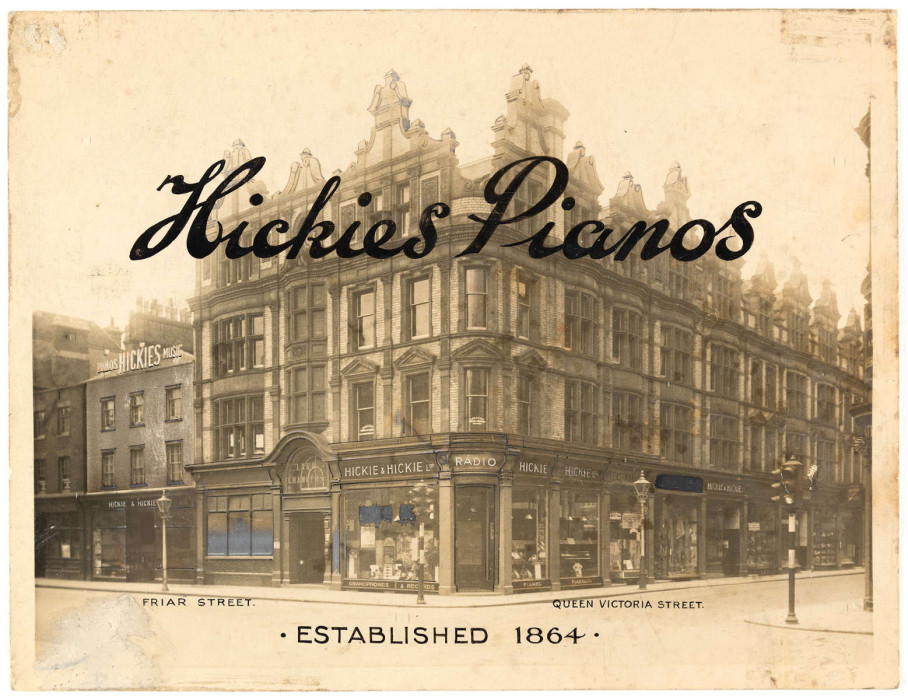
Some material has also been deposited relating to the perhaps legendary Hickies Music Shop, Reading, and its owner Michael J Elphick, late 19th century to the 1970s, including a share in Reading Football Club issued in 1924 (D/EX2944). We are also pleased to have acquired additional records (mainly accounts) for the iconic Jackson’s department store in Reading, 1905-1986 (D/EZ216).
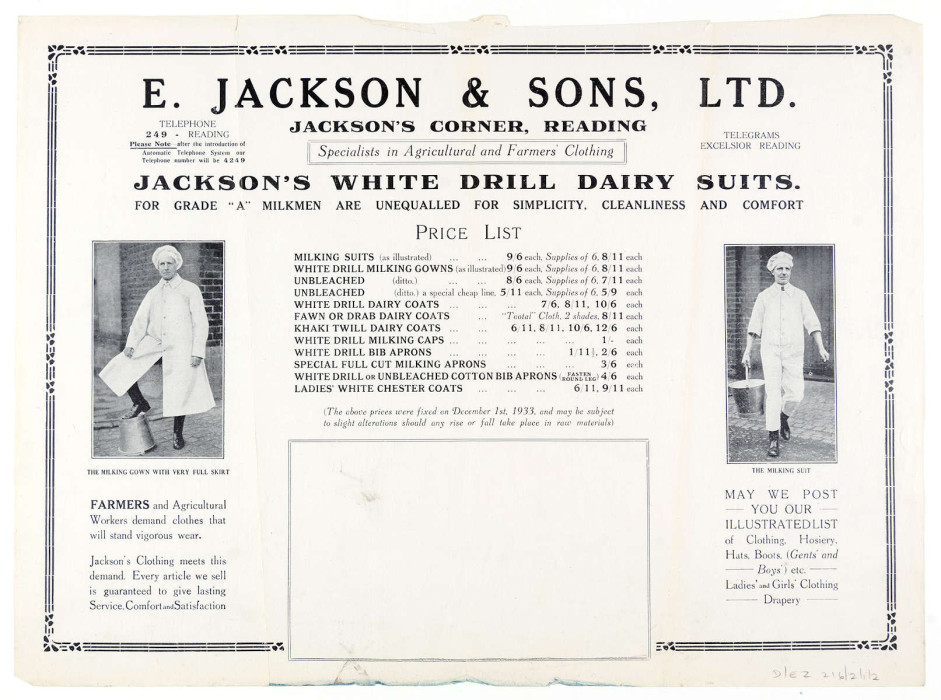
World War I rationing
Rationing is well known as an aspect of life during the Second World War. Food shortages were also an issue in the First World War, and Food Control Committees were established in local areas to enforce rationing and fix prices. Manufacturers, wholesalers and retailers had to be registered with the Committee to allow them to buy and sell restricted goods such as sugar, potatoes, meat, milk, butter, margarine, etc. Individuals were issued with ration cards which were tied to specific suppliers. Hospitals, institutions and caterers were also registered to acquire large quantities of food. Hoarding was discouraged. We have recently catalogued the minutes of Abingdon and Culham Rural Joint Food Control Committee, 1917-1920 (J/FC). This committee was established in September 1917 and covered Abingdon and the parishes of Appleton, Cumnor, Drayton, South Hinksey, Kennington, Marcham, Milton, Radley, Dry Sandford, Southmoor, Steventon, Sunningwell, Sutton Courtenay, Tubney, and some parishes in south Oxfordshire.
Voluntary arrangement: homes for war workers
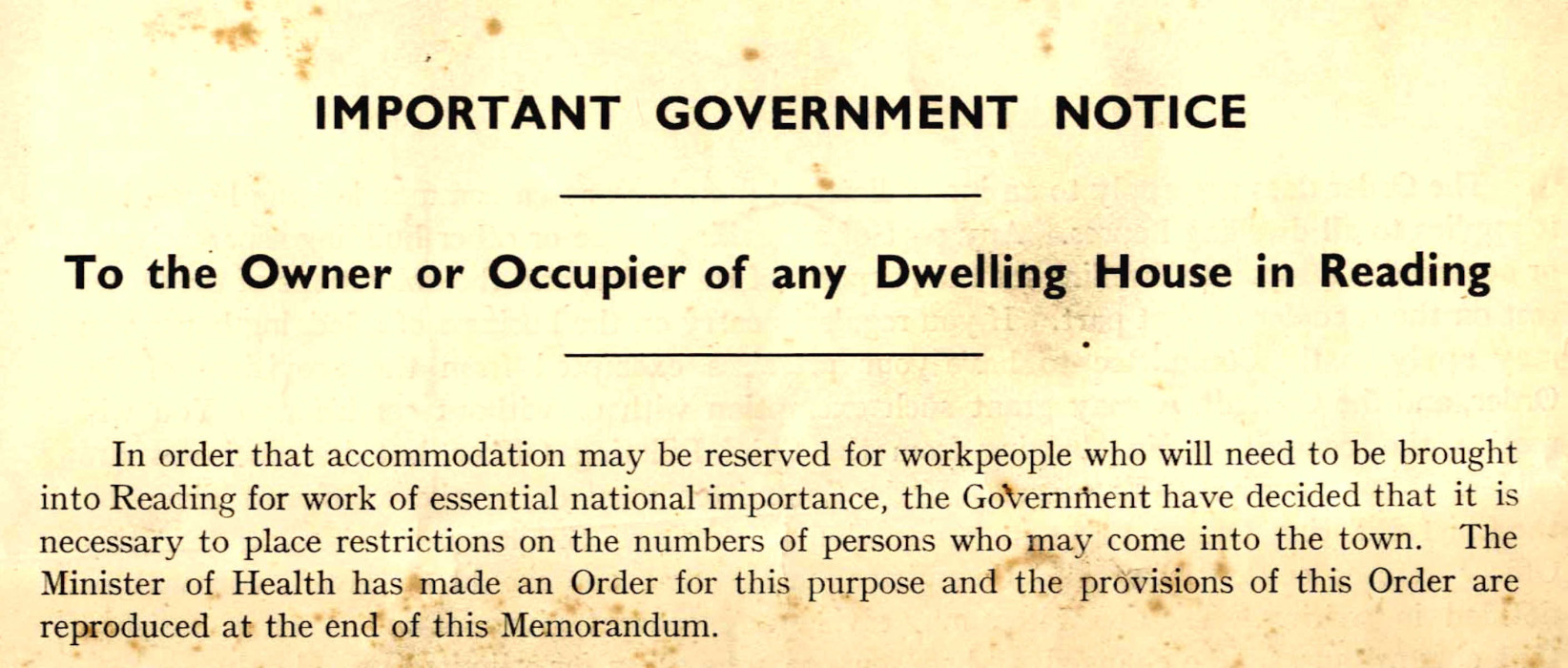
A small collection of papers of the Booth family of Reading, 1911-1947 (D/EX2836), includes a rare copy of a Government notice to Reading householders relating to the Lodging Restrictions (Reading) Order, 1941. This Order prevented all householders from letting their houses or even rooms within them for more than three nights without getting permission from Reading Education Committee, so that accommodation would be reserved for 'workpeople who will need to be brought into Reading for work of essential national importance'. Approval was granted for relatives, persons approved by the Ministry of Labour and National Service as those who should be accommodated in Reading for work, and of course those normally resident in the property. It applied to all dwelling houses in the borough, but not to pubs or common lodging houses. The notice states confidently that 'the Government trust that every householder who is in a position to do so will be willing to provide lodging for a war worker. If you are able to accommodate someone who has come to Reading for some important work you will perform a very valuable piece of national service. The Reading County Borough Council have power to billet war workers on householders compulsorily, but it is hoped that it will seldom be necessary to exercise it and that most of the incoming workpeople will be able to find accommodation by voluntary arrangement.'
Wartime changes are reflected in another ephemeral item, a Cultivation of Lands Order, issued by the Berkshire War Agricultural Committee in 1939 to Gerald Vere Borlase Burgoyne of Crowthorne Farm, and an invoice for gyrotilling 13 acres of land (D/EX2878). (If you were wondering what gyrotillers were, see https://www.machinery.uk.com/interestingpics/gyrotiller.htm.)
One of our first digital-only records consists of scans and transcripts of sections of the diary of Mary Snelling, a pupil at Queen Anne’s School, Caversham, relating to the 1943 bombing of Reading (D/EX2910), the original of which remains in private hands. We hope to be able to offer onsite access to this in due course.
Recording and fighting development
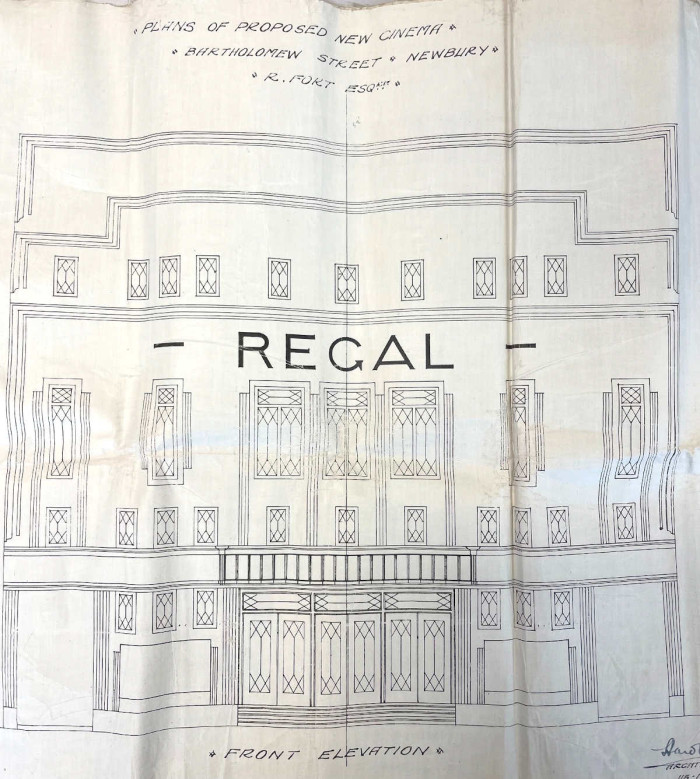
We have now catalogued the surviving building control plans for Newbury Borough, 1883-1940 (N/SB) an example of which is shown above. It is from 1930 and for a proposed new Regal cinema at 12 and 13 Bartholomew Street, Newbury.
We have also catalogued records of The Glebelands Association, a campaign group opposed to new housing development in Wokingham (D/EX2875). It was formed in 1985 to oppose a large housing development near Glebelands (a care home occuping a Grade II Listed Building built on land formerly part of the ancient Wokingham parish glebe), on a site subject to flooding. After failing to stop the plans, the Association monitored any breaches of the planning conditions by the developers, and also opposed the proposed Inner Distribution Road for Wokingham, which was eventually abandoned. The Association was wound up in 1991.
